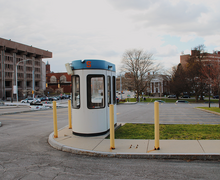Letter to the Editor : Southern Sudanese should seek political autonomy
Southern Sudanese will be heading to polling stations worldwide to cast their votes on Jan. 9, in a referendum stipulated by Comprehensive Peace Agreement (CPA) signed in 2005 under the auspices of intergovernmental authority for development. The CPA gave southern Sudanese political autonomy and a right to self-determination, which they will decide on Jan. 9. The decision on whether southern Sudanese people remain as second-class citizens under Islamic law or secede and form an independent state is totally theirs.
The questions that must be answered are: How do the international community, neighboring states, the region and the whole continent of Africa view this defining movement in Sudan? Are they comfortable with possible ‘Republic of Southern Sudan?’ How will it be safeguarded so that the natural resources in southern Sudan are extracted to benefit the region and avoid conflict?
Regarding natural resources, southern Sudan is well prepared to stand on its own. South Sudan has sizable oil revenue and is, overall, rich in minerals. The recent discoveries of natural gas in the south should serve as a positive basis. Statistically, southern Sudan will be the fourth-largest oil producer in the region.
With that, there is the possibility of corruption and the misuse of resources by leaders and big corporations. Some critics even label the current government of southern Sudan as the ‘government of self-services.’ But that is a widespread demise in the global south. For example, Al Bashir, the current president of Sudan was recently caught with $9 billion in oil money. This is no justification for treachery in government whatsoever. There is a need to build strong institutions to hold leaders accountable and promote transparency and uphold the rule of law.
The lengthy period of talks from 2002 to 2005 was sponsored and guided by the international community and regional powers; until now they are still there as observers. Further, the government of southern Sudan has done an incredible job in building an excellent relationship with neighboring countries and the world. Thus, there is nothing new or strange here in terms of a possible Republic of South Sudan. The whole region is currently satisfied and comfortable with political autonomy of southern Sudan – that, one can tell through speeches and free movement across borders. Almost every neighboring state implicitly shows recognition of their neighbor new state; they have all opened borders for trading already.
When it comes to sovereignty and what precisely constitutes a state, southern Sudan meets all the requirements. It has already been recognized by neighboring states and by most of the international powers. On the other hand, the CPA has no doubt set forth the possibility of independent south Sudan.
The two civil wars fought for a total of 39 years largely elucidate southern Sudanese’s secession. Because the first major agreement, the ‘Addis Ababa Agreement,’ was dishonored and scrapped by the Khartoum government within ten years and because the CPA is now in jeopardy of collapse, the southern Sudanese decided to stand firm, and are determined to hold referendum on time; another reason southern Sudan must gets its independence on Jan. 9.
The Khartoum’s recent desperation moves, revealed by Wikileaks cables, are troubling but not surprising. The cable illustrates how the Khartoum was urging Americans through the Egyptian government to adjourn the referendum indefinitely. They are enormously anxious right now, and that overwhelming nervousness in their part generates a lot of excitement in south Sudan. It’s an indication of how this referendum has become the final step to the total freedom of southern Sudanese. And that’s free at last!
Makuir Yei Mashar
Syracuse University Junior
Published on January 1, 2011 at 12:00 pm





